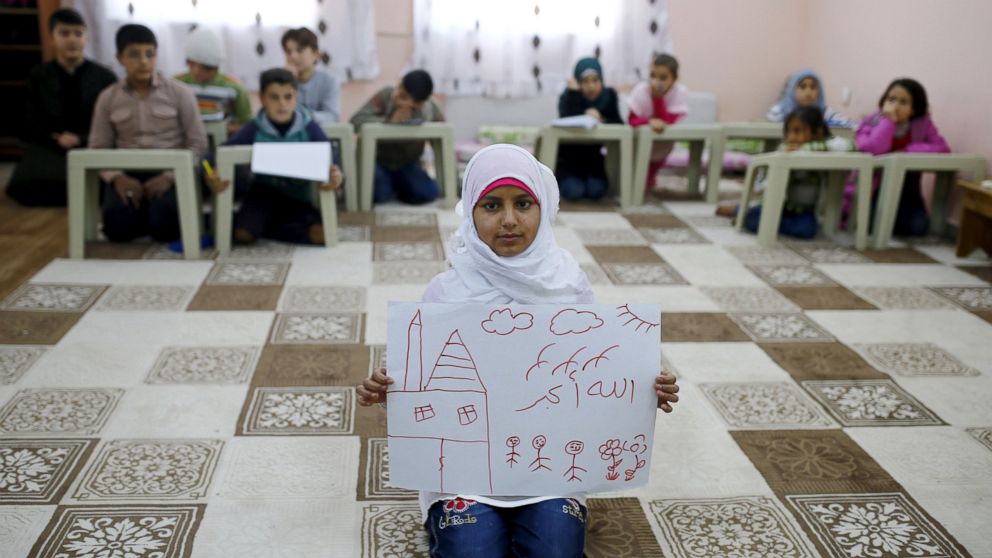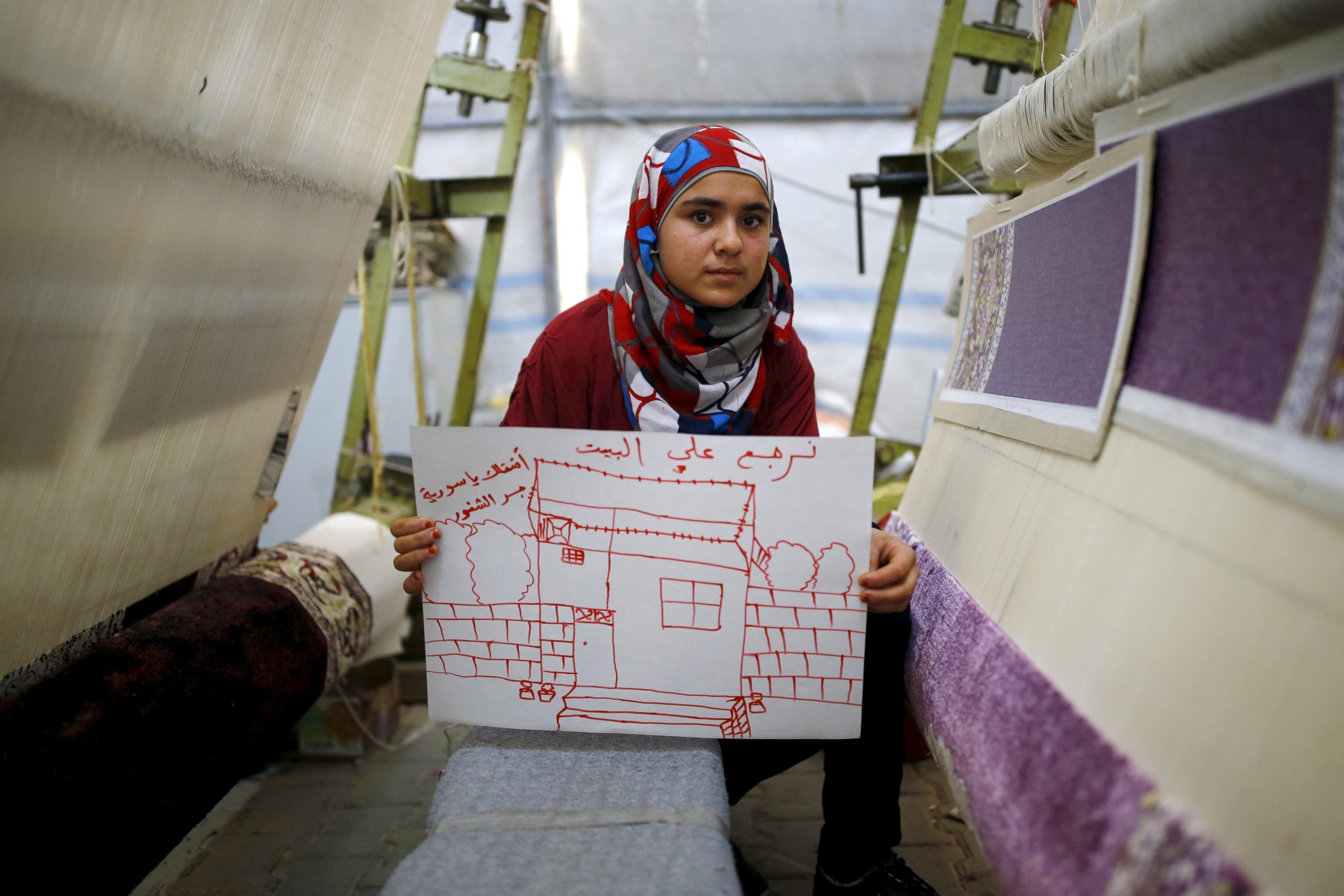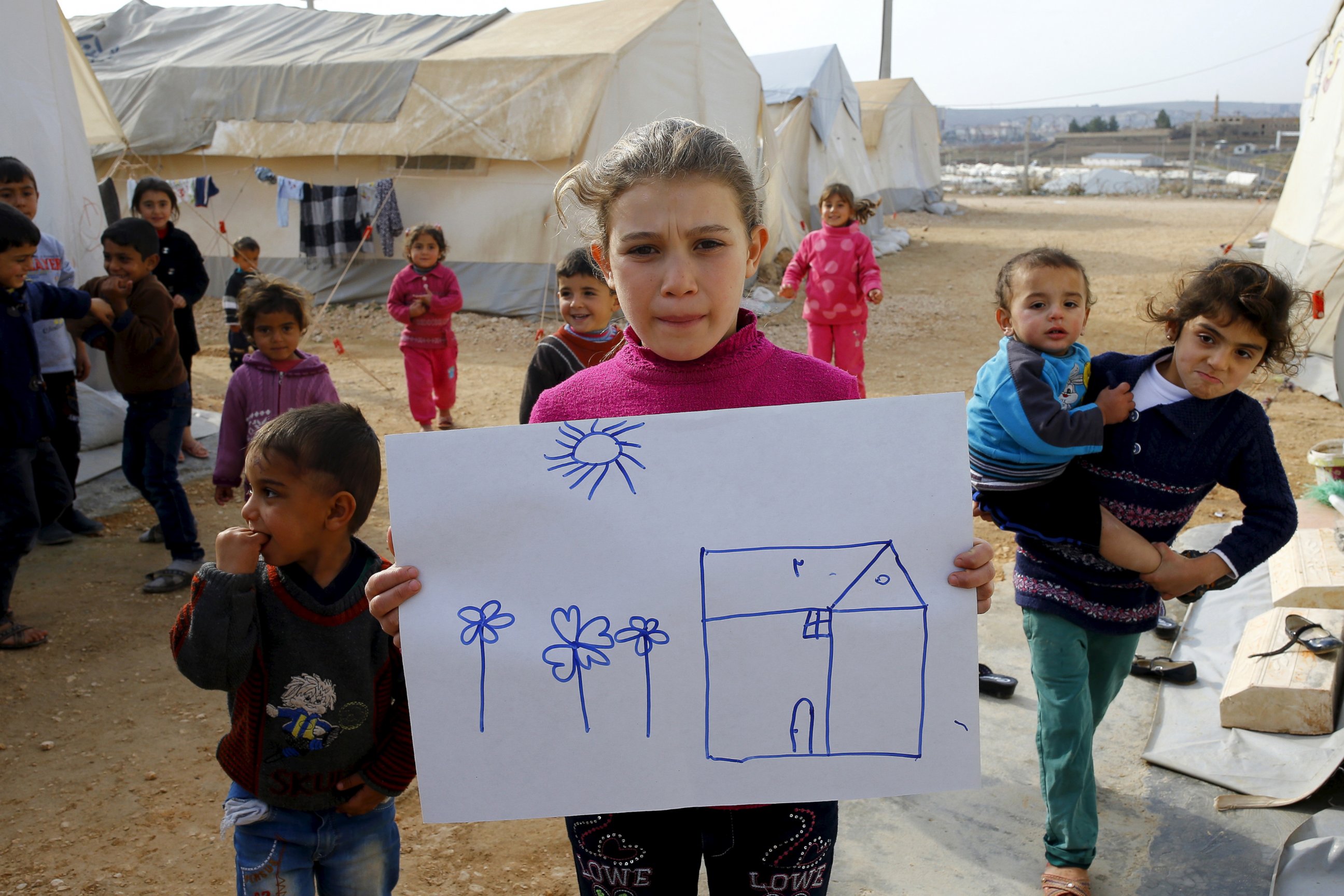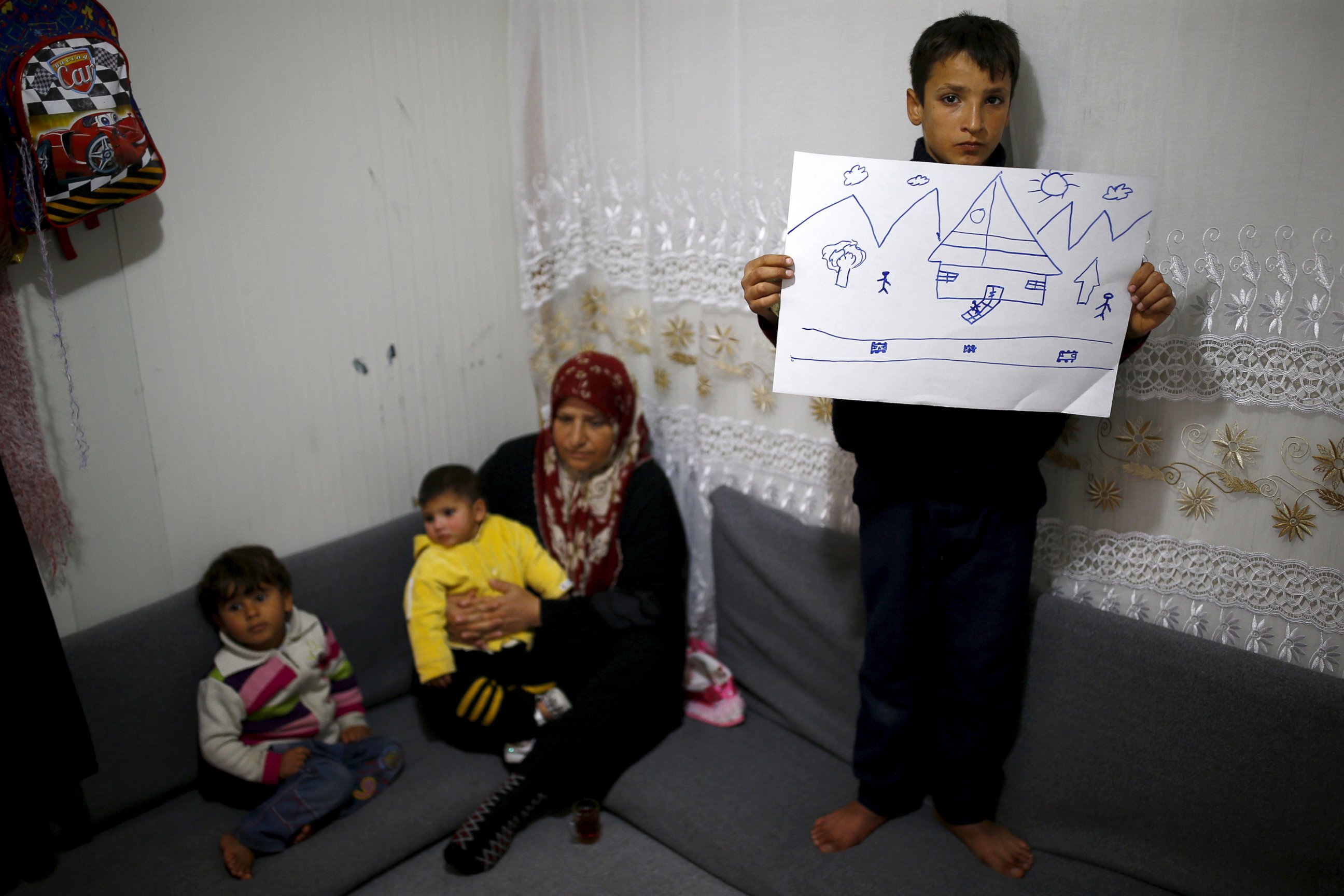Syrian Refugee Children Draw Pictures of Their Former Homes
A photographer asked children to draw or write whatever "comes to mind first."

— -- Home is truly where the heart is, a classic expression proven by Syrian children at refugee camps in Turkey, who drew pictures of their homes for a photographer who simply asked them to put to paper whatever "comes to mind first."
In December, Reuters photographer Umit Bektas asked school-aged Syrian refugees to "please draw me something or write a few words on this piece of paper," he told ABC News today.
"It doesn't matter what it is," Bektas said he told the children.
What resulted is images of nostalgia and heartbreak, and an obvious longing to return to the home they once knew.
One 11-year-old girl, named Islem Halife, drew a picture in red ink of her home in Syria as she sat in a classroom in the Nizip refugee camp in the Gaziantep province of Turkey, Bektas said.
"I did not ask them to draw their homes," Bektas told ABC News.
The drawings are simple, unassuming, and are exactly what one may expect from a child artist.
During a carpet weaving workshop in the Midyat refugee camp in Mardin province, Turkey, 14-year-old Meryem Mahmo drew a picture of her home in Syria, Bektas reported.
"I want my home," the Arabic writing on the photo reads. "I miss you Syria."

Turkey has received an influx of 1.5 million Syrian refugees, Stephen Ryan, a Communications Coordinator with the International Federation of Red Cross and Red Crescent Societies, told ABC News today.
Of the millions of Syrian refugees who have left their home country, the majority of them want to return home, Ryan, who specializes in matters in the Middle East and North Africa, told ABC News.
"The vast majority of people who have left their home country are doing it for their children," Ryan said, describing the situation as "extremely difficult" for both children and parents.
The Turkish Red Crescent has implemented programs for children of Syrian refugees, providing language classes, child activities and a safe space for parents to leave their children so they're able to "do their own thing," such as vocation training, Ryan said. The Red Crescent is currently providing assistance for 275,000 Syrian refugees, he said.

At the Midyat refugee camp in the Mardin province of Turkey, 10-year-old Rahaf Hasan posed for Bektas' camera as she held the drawing she drew of her home in Syria, complete with flowers and a sun shining over the house.
"I think it’s something that illustrates the emotional connection that the children have to them home," Ryan said of the drawings. "When you look at these type of pictures, there’s an honesty to them."
Standing next to his mother and brothers in a tent at the Nizip refugee camp in Gaziantep province, Turkey, 12-year-old Ahmet Cemal held up a picture drawn in blue ink for Bektas, which shows his home in Syria surrounded by trees, clouds and people standing in the yard. It even depicted a roadway outside the home, with a few cars driving by.

"They have a connection, whether they remember it well or not," Ryan said, adding that Syrian children under 5 years old know nothing but a life of war and conflict.
"We need to recognize that these are young people who have hopes and dreams, and one of the main ones is they want to return home," he said.




